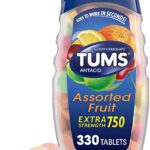9 Medications That Can Cause Heartburn and GERD

What Is Heartburn?
Heartburn is an irritation of the esophagus caused by stomach acid. This leads to a burning discomfort in your upper belly or below your breastbone. Despite its name, heartburn has nothing to do with the heart. But some of the symptoms are similar to those of a heart attack or heart disease.
The most frequent symptom of acid heartburn is a feeling of warmth, heat, or burning in the chest and throat. This is due to the stomach acid flowing back up into the esophagus.
Other symptoms include:
- a burning sensation in the middle of the chest
- a burning, indigestion-like pain
- a foul, acrid taste in the mouth
Gastroesophageal reflux disease (GERD) is a more serious form of acid reflux. In GERD, the backflow of stomach acid occurs chronically and causes damage to the body over time.
How long does heartburn last?
Heartburn can affect people differently. In general, heartburn symptoms begin shortly after eating and can last anywhere from a few minutes to a couple of hours, or even longer.
How long you experience symptoms depends on the underlying cause. It also depends on what you do at the first sign of symptoms. For example, sometimes heartburn symptoms last until your body digests the triggering food. Other times, it goes away if you stand up instead of lying down after eating.
Can Medications Cause Heartburn?
Yes, certain medications can cause heartburn as a side effect. These medications have the ability to trigger a heart-burning sensation in the chest because they can cause stomach acid to flow back into the esophagus.
Some of the medications that can cause heartburn include:
1. Nonsteroidal anti-inflammatory drugs (NSAIDs): These include medications such as aspirin, ibuprofen, and naproxen. They can irritate the lining of the stomach, leading to heartburn.
2. Antibiotics: Certain antibiotics, such as tetracycline and doxycycline, can irritate the esophagus and cause heartburn.
3. Calcium channel blockers: These medications, which are used to treat high blood pressure, can relax the muscles in the esophagus, making it easier for stomach acid to flow back into the esophagus.
4. Bisphosphonates: These medications, which are used to treat osteoporosis, can irritate the esophagus and cause heartburn.
5. Potassium supplements: These supplements can cause irritation in the esophagus and stomach, leading to heartburn.
6. Antidepressants: Some antidepressants, such as tricyclic antidepressants, can cause heartburn by slowing down digestion.
7. Steroids: Certain steroids, such as prednisone, can irritate the stomach lining and cause heartburn.
8. Iron supplements: These supplements can cause irritation in the esophagus and stomach, leading to heartburn.
9. Opioids: Opioid painkillers can slow down digestion and cause constipation, which can lead to heartburn.
If you are experiencing heartburn as a side effect of a medication, talk to your doctor. They may be able to adjust your dosage or switch you to a different medication to help alleviate your symptoms.
How to prevent drug-induced heartburn
Medication-induced heartburn can be a frustrating side effect that affects many people. Fortunately, there are several steps you can take to help prevent heartburn caused by medication. In this article, we will discuss some tips on how to prevent medication-induced heartburn.
1. Take medication with food
One of the easiest ways to prevent medication-induced heartburn is to take the medication with food. This can help to buffer the stomach acid and prevent it from flowing back into the esophagus. It is important to note that not all medications can be taken with food, so be sure to consult with your doctor or pharmacist before making any changes to your medication regimen.
2. Avoid spicy and acidic foods
Spicy and acidic foods can irritate the stomach lining and worsen heartburn symptoms. If you are taking medication that can cause heartburn, it is important to avoid these types of foods. Some examples of spicy and acidic foods include citrus fruits, tomatoes, coffee, and hot peppers.
3. Avoid lying down after taking medication
Another way to prevent medication-induced heartburn is to avoid lying down immediately after taking medication. When you lie down, it can make it easier for stomach acid to flow back into the esophagus. Instead, remain upright for at least 30 minutes after taking medication. This can help to reduce the risk of heartburn
4. Stay hydrated
Staying hydrated can help reduce heartburn in many ways. Drinking water or other non-acidic fluids can help dilute the stomach acid that causes heartburn, which can reduce the intensity of the burning sensation. Proper hydration also helps to promote the movement of food through the digestive tract, which can reduce the likelihood of stomach acid backing up into the esophagus.
Adequate hydration helps to maintain the mucous lining of the esophagus, which acts as a protective barrier against stomach acid.
5. Use antacids
Over-the-counter antacids, such as Tums or Maalox, can help neutralize stomach acid and relieve heartburn symptoms. Antacids are typically made of alkaline compounds such as magnesium hydroxide, calcium carbonate, or sodium bicarbonate. These compounds react with the acid in the stomach, producing neutral salts and water. The resulting solution is less acidic and less likely to cause irritation and discomfort in the esophagus. By reducing the acidity of the stomach contents, antacids help relieve heartburn symptoms and provide temporary relief. However, it is important to note that not all medications can be taken with antacids, so be sure to consult with your doctor or pharmacist before making any changes to your medication regimen.
6. Talk to your doctor: If you are experiencing persistent heartburn as a side effect of medication, talk to your doctor. They may be able to adjust your dosage or switch you to a different medication that is less likely to cause heartburn.
Remember to always follow your doctor’s instructions for taking medication and to report any side effects you experience.





